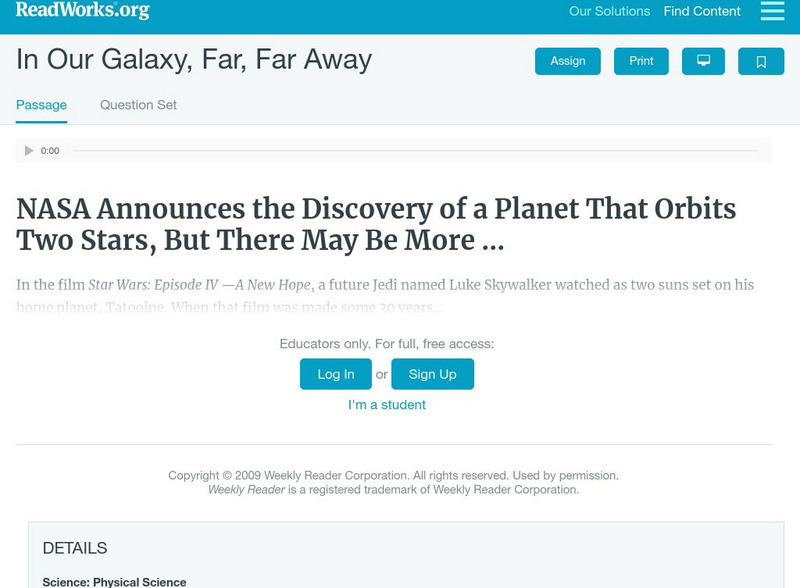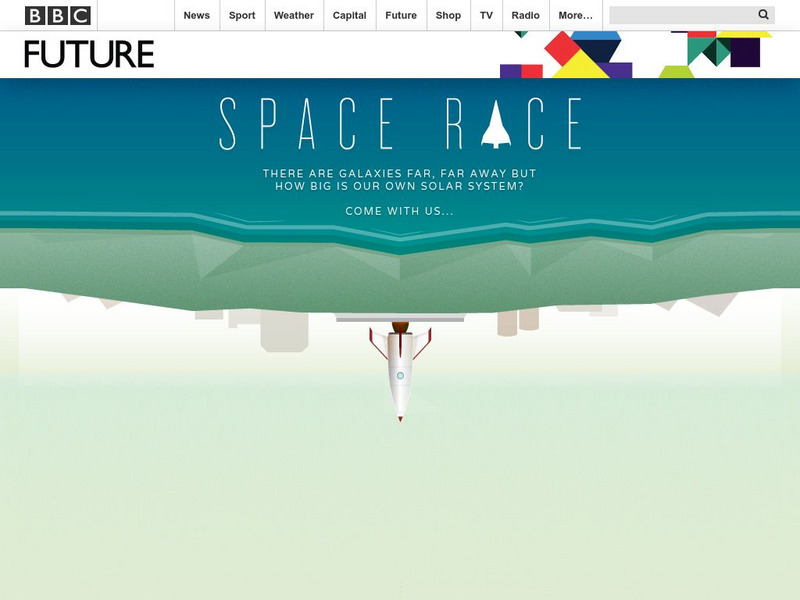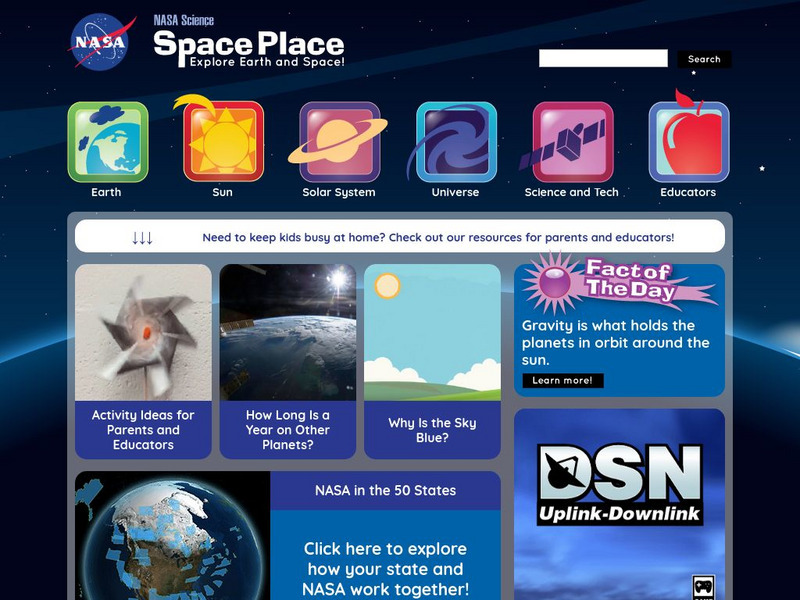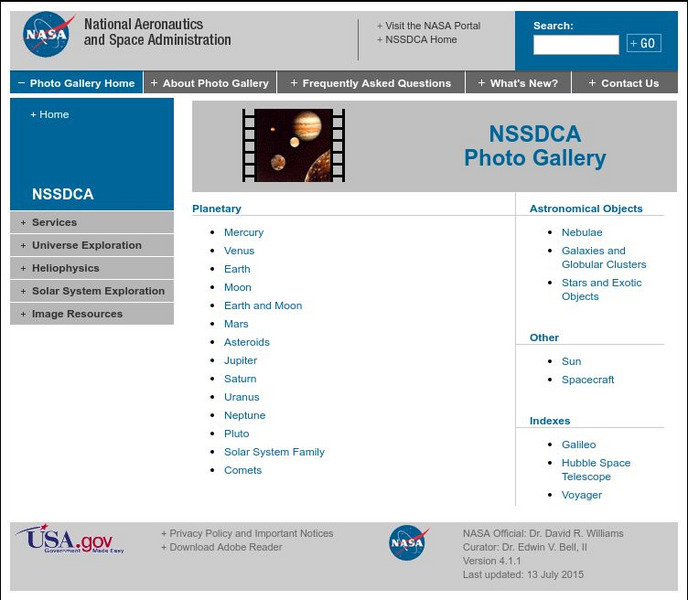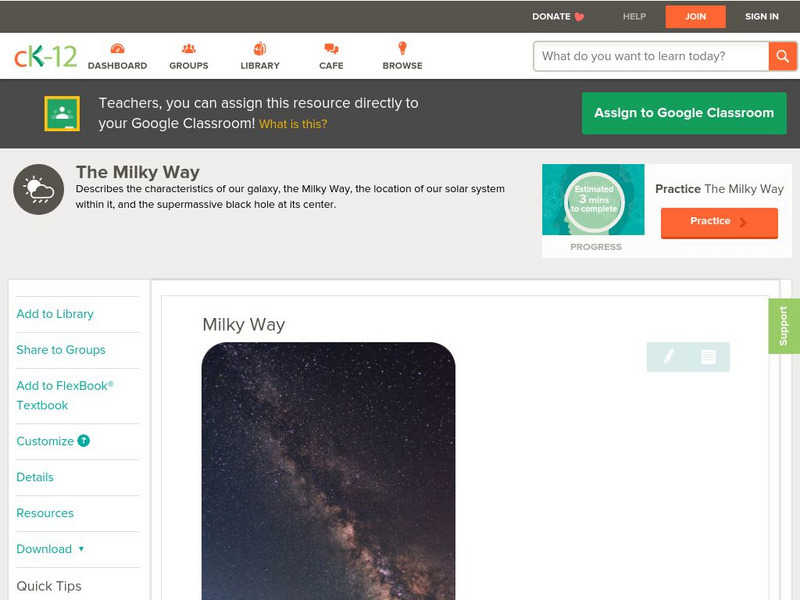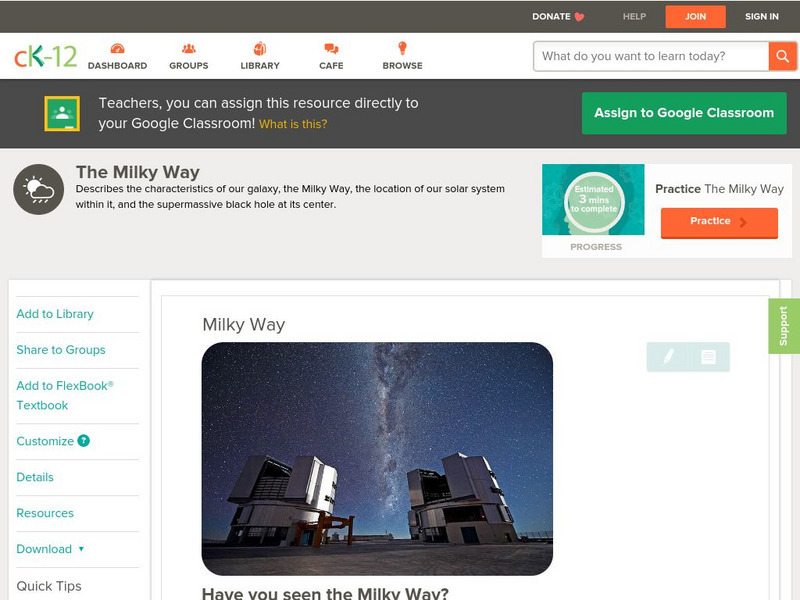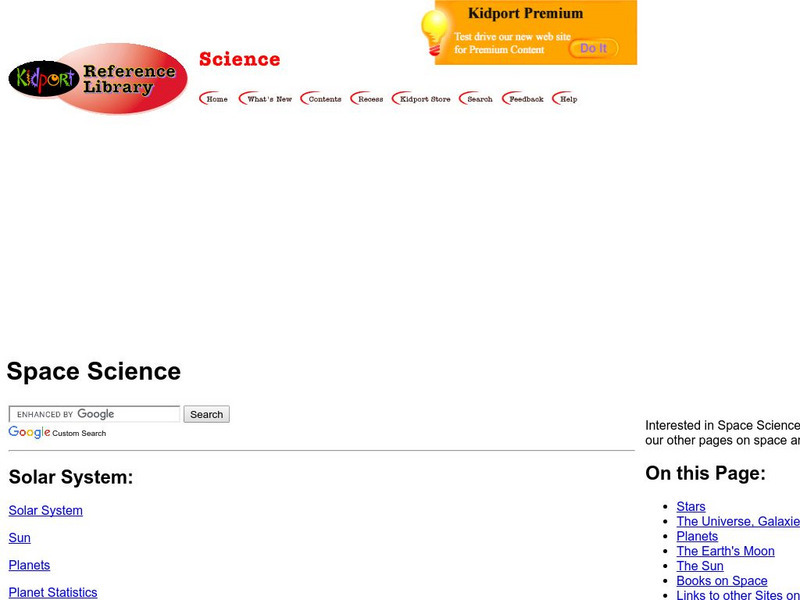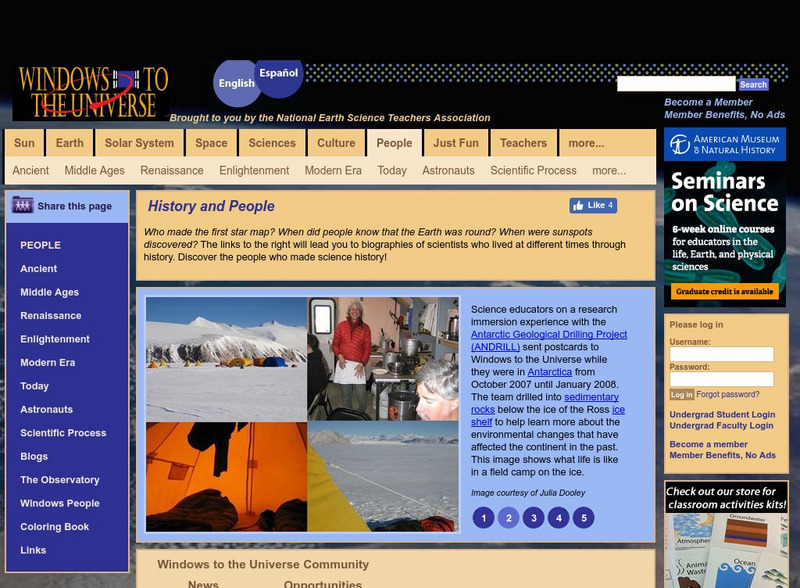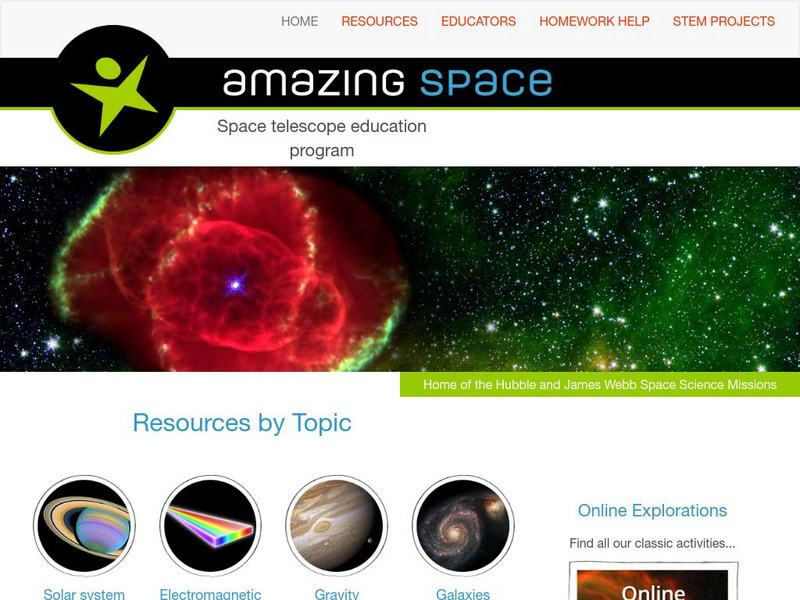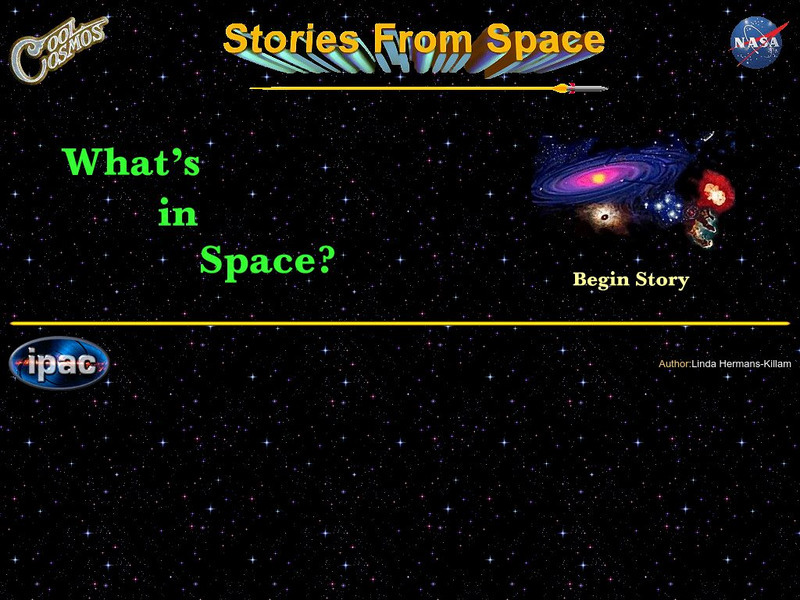Read Works
Read Works: In Our Galaxy, Far, Far, Away
[Free Registration/Login Required] An informational text about earth-like planets in other solar systems. A question sheet is available to help students build skills in reading comprehension.
BBC
Bbc: Space Race
There are galaxies far, far away, but just how big is our own solar system? Scroll through this interactive to quickly observe just how much we know and have learned about our solar system.
NASA
Nasa: Star Child: Elementary Astronomy Unit
Learn everything you can about outer space with this interactive astronomy unit. 2 levels of difficulty with modules on the solar system, the universe, other "space stuff" and a glossary of terms. Links for parents and other great website.
Space Telescope Science Institute
Hubblesite: News Center Release Archive
This site from Hubblesite has a very long list of Hubble Space Telescope Images listed by subject. General categories of subjects include Solar System, Stars, Nebulae, Star Clusters, Novae, Supernovae, Stellar evolutionn, Galaxies, and...
NASA
Nasa Star Child: Star Child
StarChild from NASA defines and describes the Solar System in a simple and easy-to-understand manner. The website is broken down into two versions for the student, grade school and junior high.
NASA
Nasa Space Science Data Archive: Photo Gallery
A website featuring a collection of images from NASA. Collection includes images of planets, comets, nebulae, galaxies, stars, sun, and spacecrafts.
Other
University of Cambridge: Astro Adventure
Imagine a time when you can travel through space, planet to planet, cheaply and in comfort, when you can take a trip to the stars as your next holiday. Well, imagine no more. Learn more about the solar system as you take this trip of a...
Cosmos 4 kids
Cosmos4 Kids: Everything Gathers
Understand that smaller parts make up the larger parts of our solar system. See that gas and dust come together to form a star, small rocks and asteroids come together to form planets, and so on. This page is a reference page that...
CK-12 Foundation
Ck 12: Earth Science: Milky Way
[Free Registration/Login may be required to access all resource tools.] Identify the shape and size of the Milky Way and where our solar system is located in the Milky Way.
CK-12 Foundation
Ck 12: Earth Science: Milky Way
[Free Registration/Login may be required to access all resource tools.] Identify the shape and size of the Milky Way and where our solar system is located in the Milky Way.
Other
Kid Power: Astronomy for Kids
Young children can find facts about the Solar System, the Sun, meteorites, stars, galaxies, planets, our moon, comets, asteroids, and space exploration. Pages offer clear photos and bullet-point information, which is easy to read and...
Kidport
Kidport: Space Science
This complete resource will help students to improve their understand of space exploration. Includes images of the universe, galaxies, stars and planets.
Natural History Museum
Natural History Museum: Our Place in the Universe
Part of a larger online exhibit on the moon and space, this site deals with one's place in the universe. The topics covered include the sun and solar system, the galaxy, and the universe.
PBS
Pbs Learning Media: Birth of a Supernova, Type Ia
In this interactive activity from NOVA Online, learn about a type of exploding star - a Type Ia supernova - that is so bright that astronomers can measure the distance to the galaxy in which it resides, and even learn which elements make...
NASA
Nasa: Jet Propulsion Laboratory: Planet Quest: Exoplanet Exploration
Constellation of articles, images, diagrams, posters, videos, and more on the subject of the search for planets, particularly Earth-like planets, outside our solar system.
NASA
Nasa: Image Science Center: Ask the Space Scientist
A NASA scientist, Dr. Sten Odenwald, answers many students' questions. Topics include planets, galaxies, black holes, the origin of the universe, and common misconceptions about space.
Enchanted Learning
Enchanted Learning: Zoom Astronomy
Where is our Solar System? How far away is the sun? What makes up the sun? Find out all you want to know about our solar system. This is a comprehensive on-line site about space and astronomy. Check out all of the excitement!
ACT360 Media
Act Den: Sky Den
This journey will help you solve big questions about the universe. You will be able to see beyond human capabilities and will learn what scientists are discovering.
National Earth Science Teachers Association
Windows to the Universe: History & People
Biographies of people throughout history who looked at the sky and wondered what was there. Links to a detailed description of the planets and interactive activities.
A&E Television
History.com: The Space Race: Interactive Universe
A virtual journey through space offers photos and facts about Earth and its neighboring planets, comets, other celestial bodies of the Solar System, and the Milky Way and Andromeda galaxies.
American Museum of Natural History
American Museum of Natural History: Ology: What Do You Know About Stars?
Test your knowledge with this ten-question quiz on stars. Focusing on stars in the Milky Way galaxy, questions range from the life cycle of a star to the number of stars in our galaxy.
Space Telescope Science Institute
Space Telescope Science Institute: Amazing Space
Amazing Space promotes the "science and majestic beauty of the universe for use in the classroom." Here you can find learning activities, lesson plans, teaching guides, and helpful tips for students eager to learn about space and space...
Nine Planets
The Nine Planets: Sun Picture List
Various pictures and movies of the sun. Download some of these files and then give a presentation to your class explaining the solar phenomena.
California Institute of Technology
Cal Tech: Stories From Space: What's in Space?
Through this story you will be introduced to outer space: stars, the Milky Way, planets, the Solar System, the Sun, clouds of dust and gas, galaxies.


